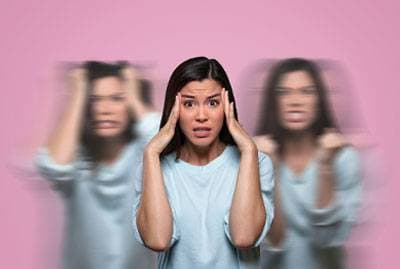- All
- Psychotic and Neurodegenerative Disorders
- Mood Disorders
- Anxiety and Related Disorders
- Personality Disorders
Explore articles

Schizophrenia
Schizophrenia is a severe mental disorder that affects how a person thinks, feels, and behaves. Individuals with schizophrenia often seem like they have lost touch with reality, which can be distressing for both them and their loved ones. Schizophrenia is a chronic condition that requires lifelong treatment and can be disabling.

Psychosis
Psychosis is a serious mental condition in which a person loses touch with reality. It affects how a person thinks, perceives, and interprets the world around them. People experiencing psychosis may see, hear, or believe things that are not real. It can be frightening and confusing, both for the individual and those close to them. Psychosis is a symptom, not a disease itself, and it can occur as part of many mental or physical conditions.

Depression
Depression is a mood disorder that causes persistent feelings of sadness, hopelessness, and a loss of interest in activities. It affects how a person feels, thinks, and handles daily activities, such as sleeping, eating, or working. Depression can be long-lasting or recurrent, and it can significantly impact a person's ability to function.

Panic Disorder
Panic disorder is a type of anxiety disorder characterized by sudden and repeated episodes of intense fear that trigger severe physical reactions, even when there is no real danger. These episodes are known as panic attacks. Panic disorder can significantly interfere with daily life, as individuals often live in fear of having another panic attack.

Borderline Personality Disorder
Borderline Personality Disorder (BPD) is a mental health disorder characterized by unstable moods, behavior, and relationships. Individuals with BPD often experience intense episodes of anger, depression, and anxiety that may last from a few hours to days. They may also engage in impulsive behaviors such as self-harm or substance abuse.
.jpg&w=3840&q=75)
Geriatric Sleep Disorder
Geriatric sleep disorders, especially insomnia, are common among older adults and often affect their overall health and well-being. Sleep difficulties in the elderly may be related to changes in the body's internal clock, medical conditions, or medication use. These disorders can lead to poor quality of life and increase the risk of falls, cognitive decline, and depression.
